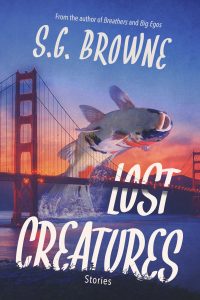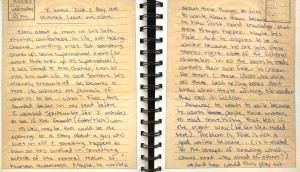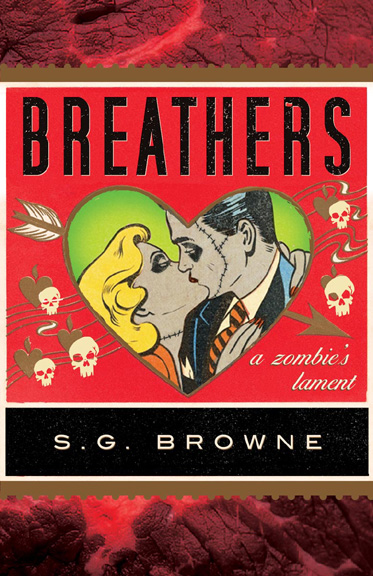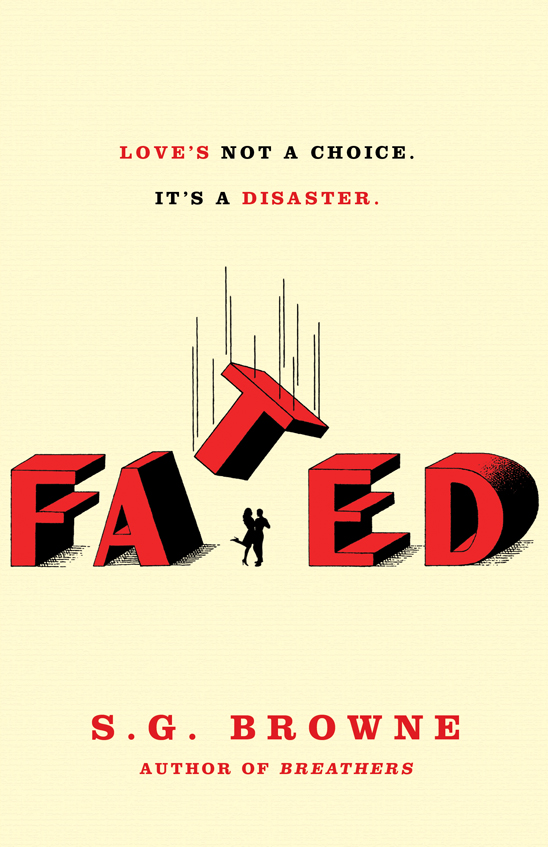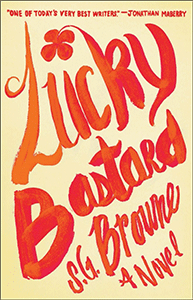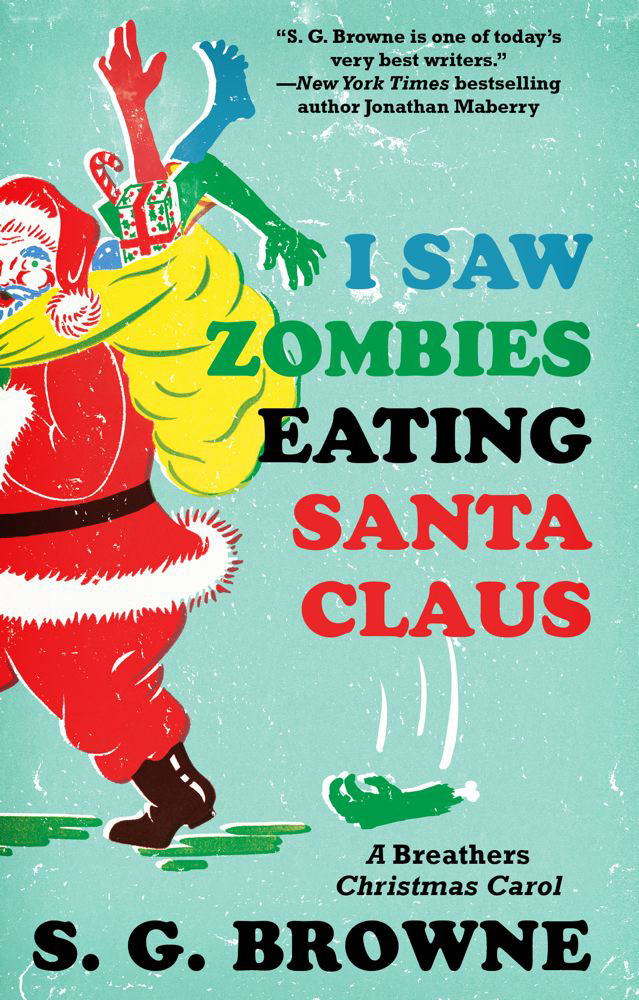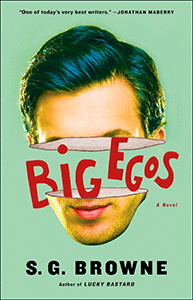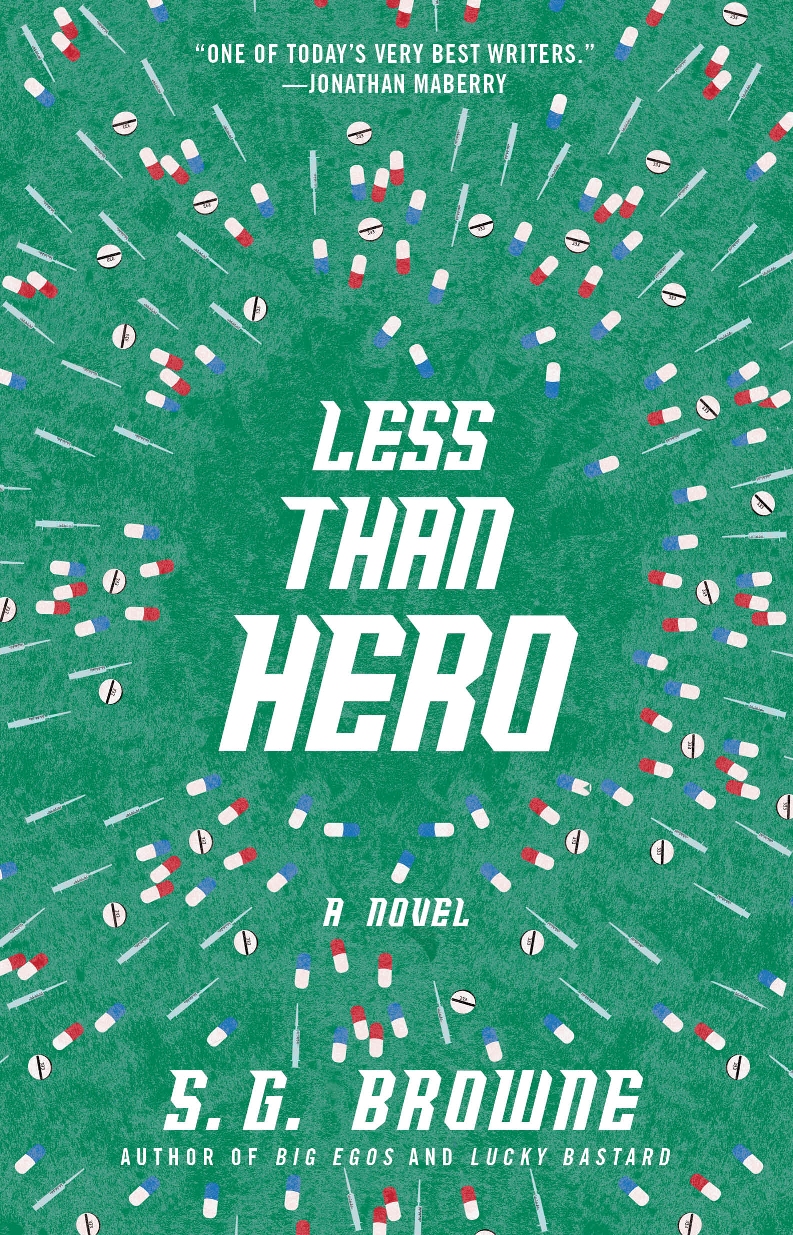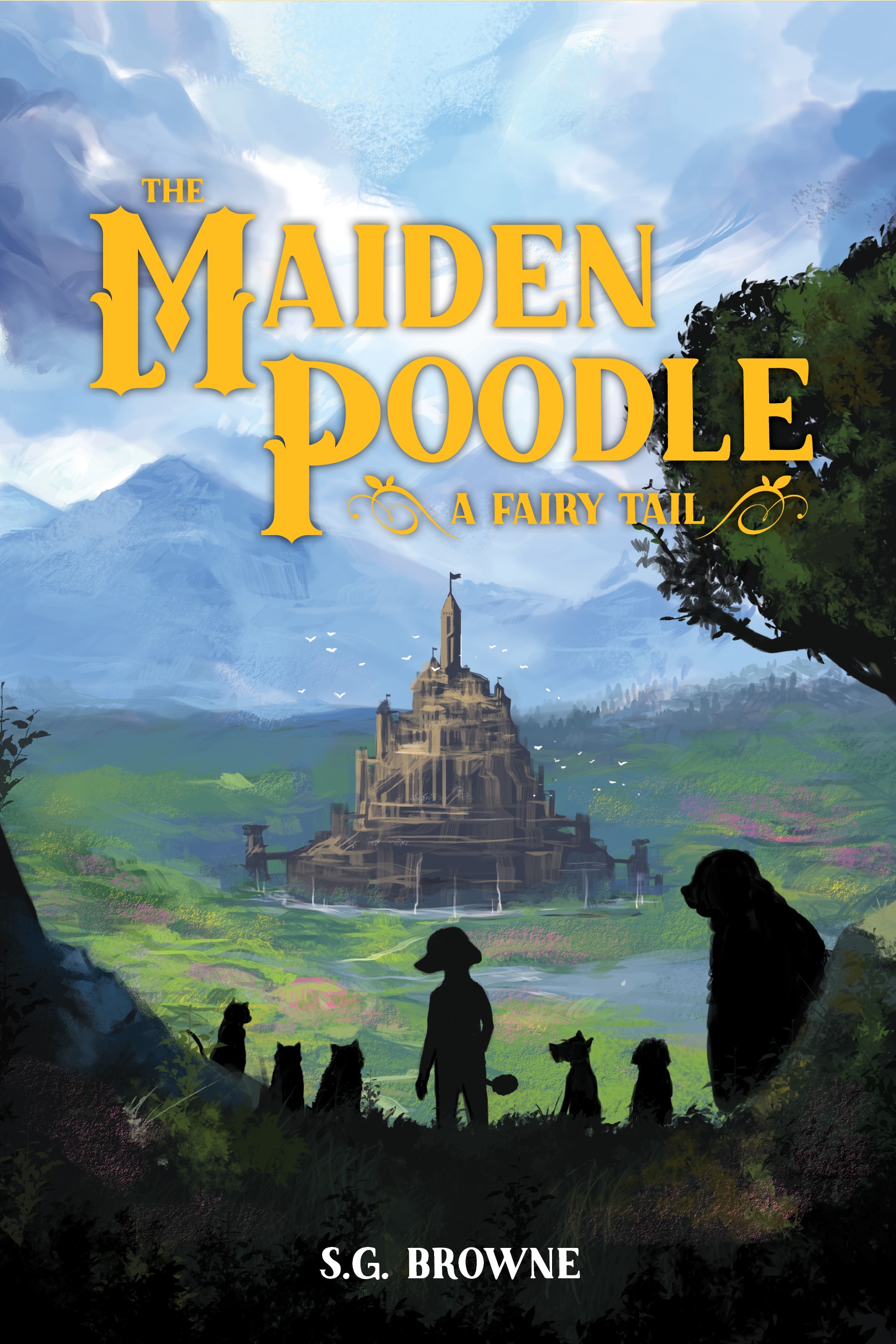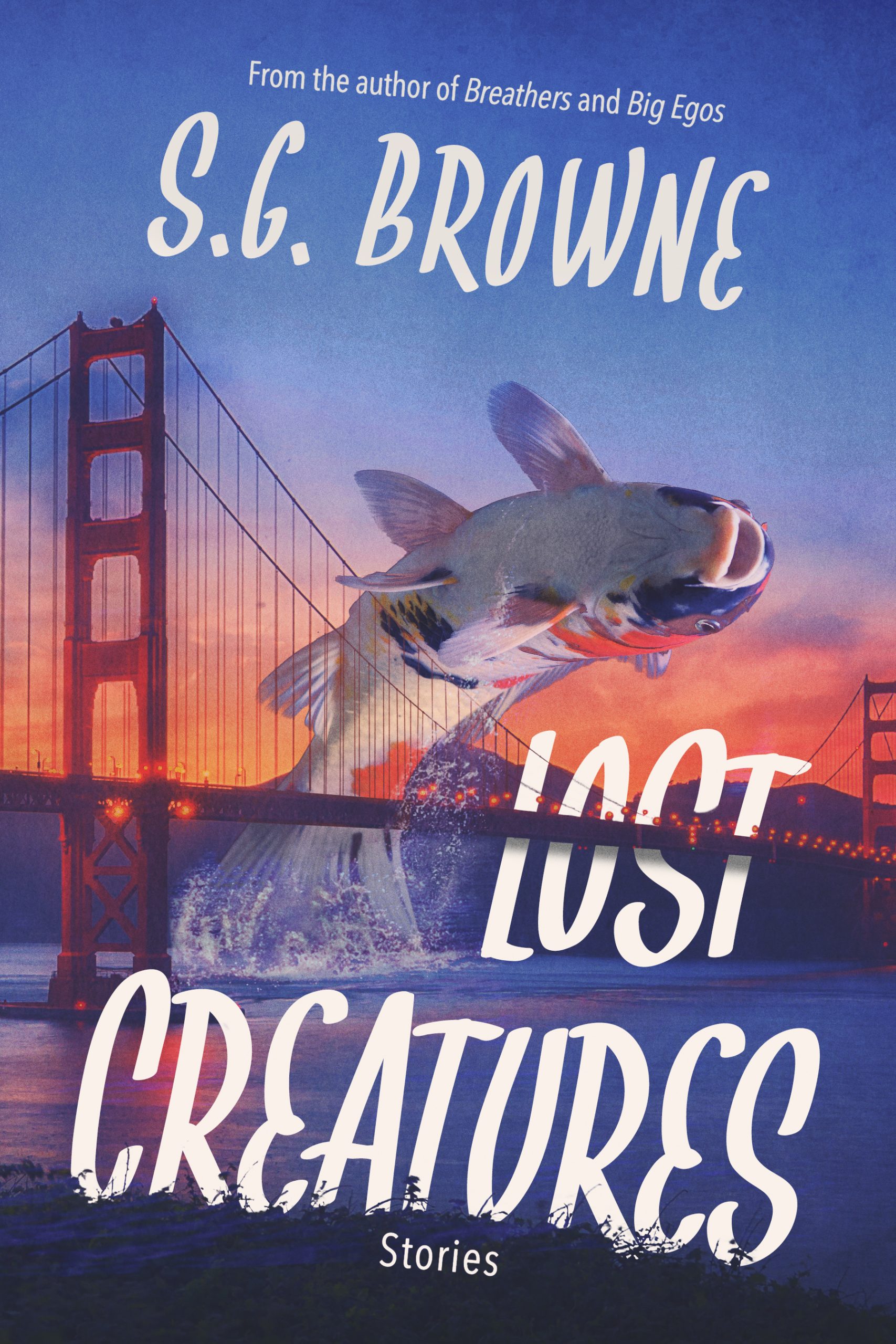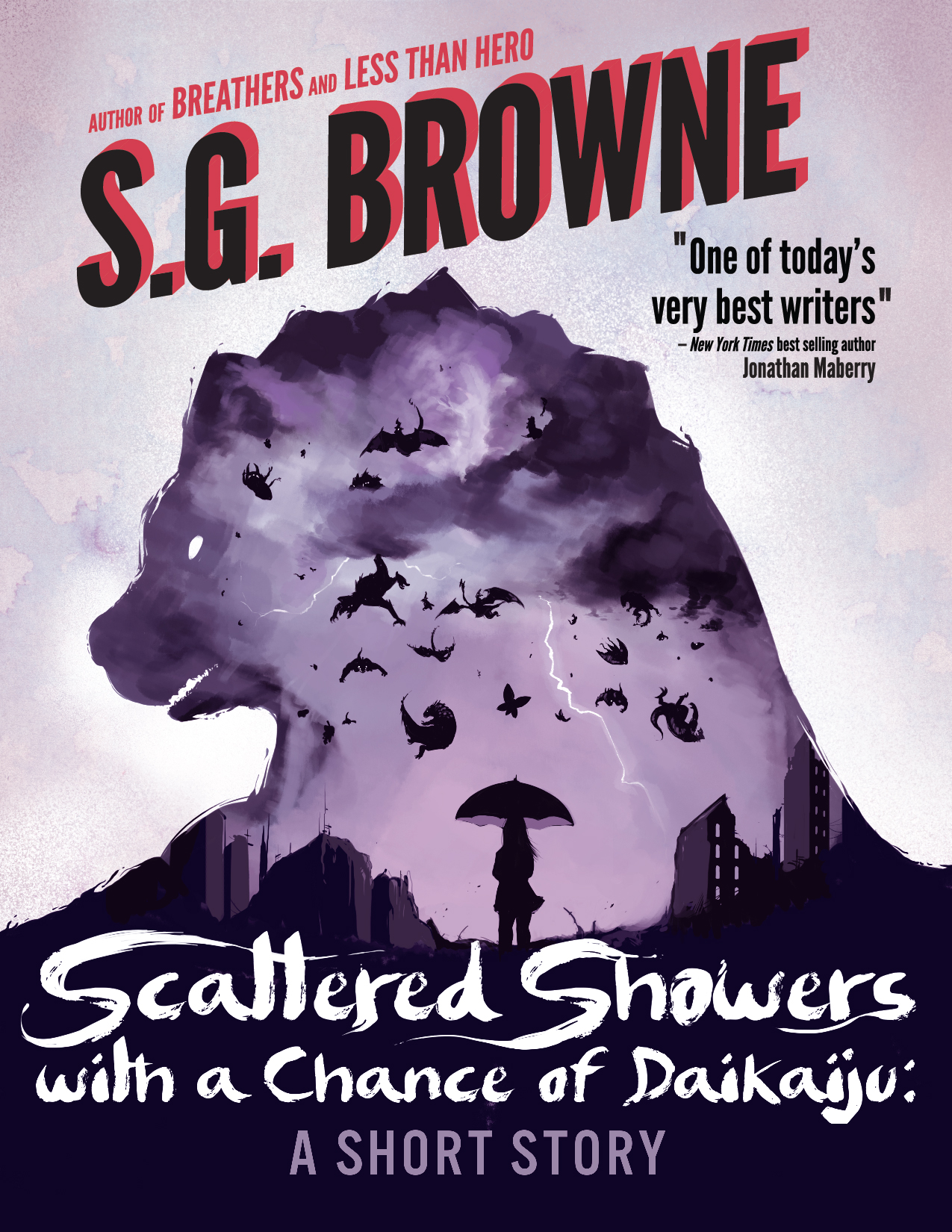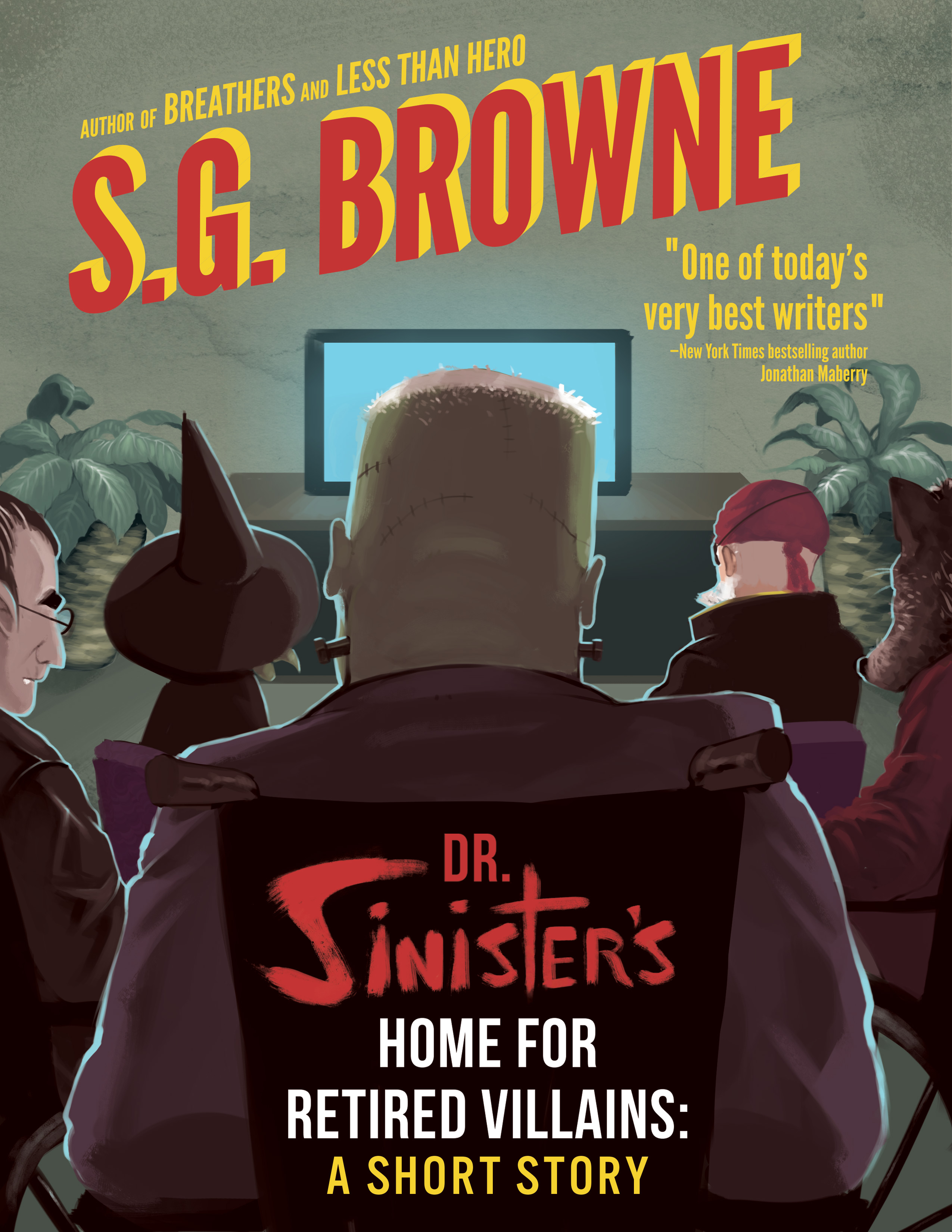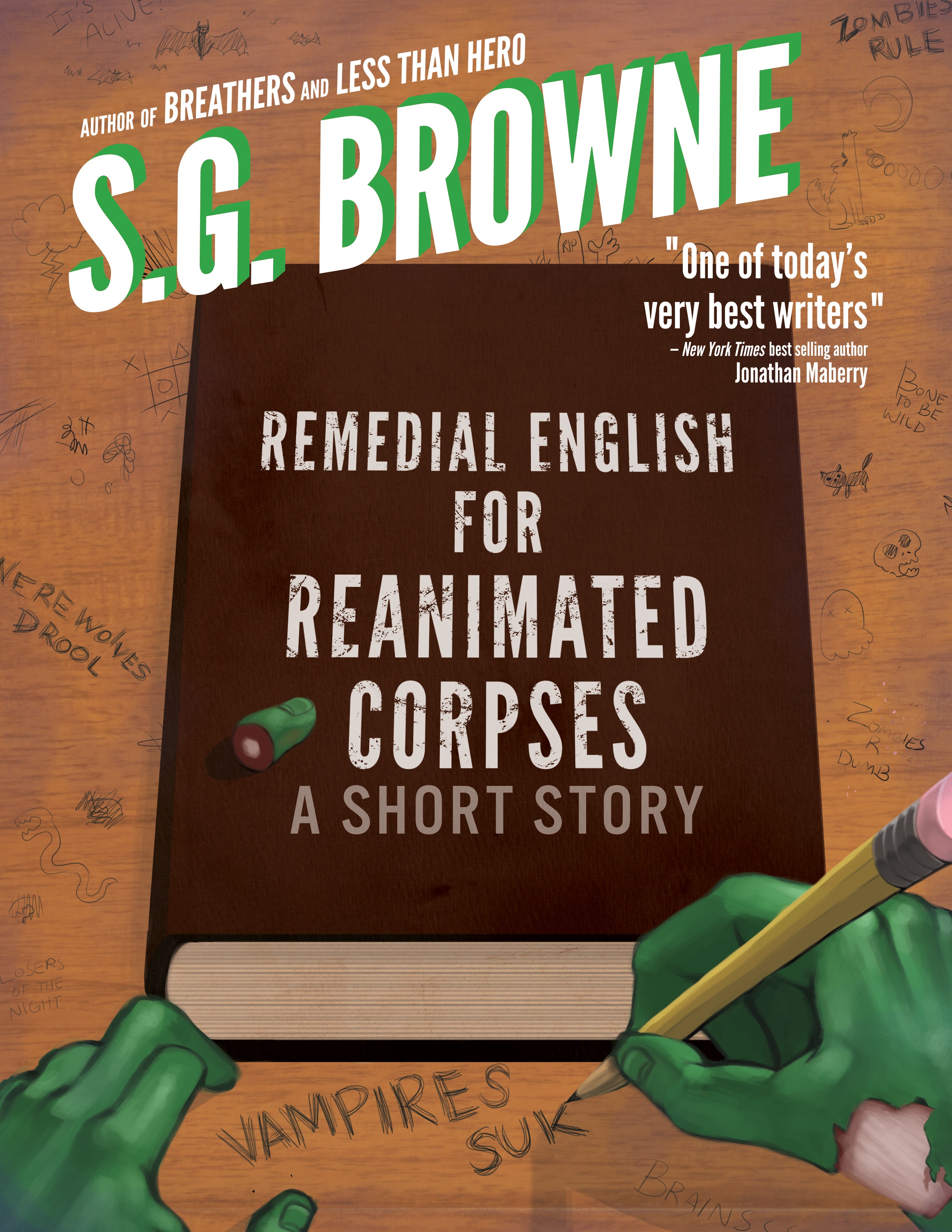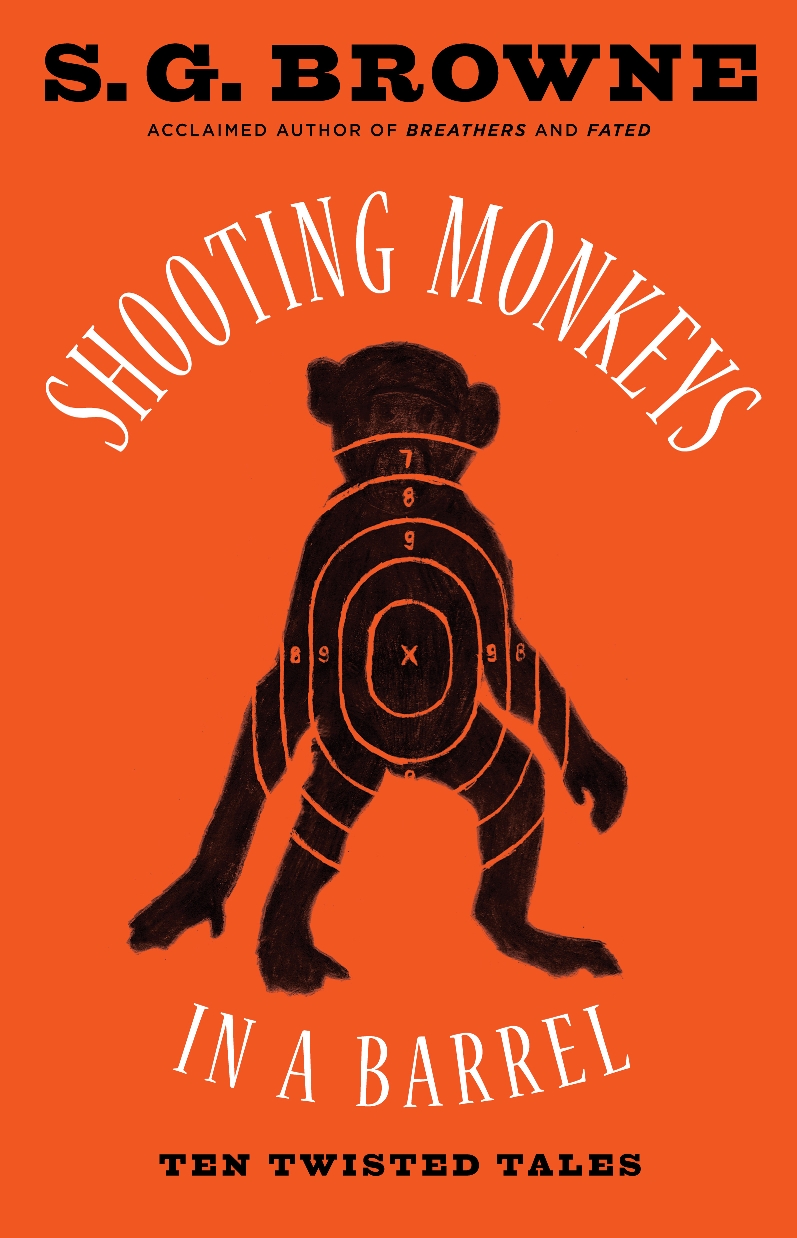Beyond the Keyboard: Fated
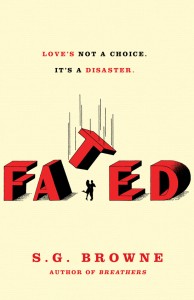 This is Round #2 in my Beyond the Keyboard series of blog posts in which I’ll share some insights into the background and creation of my novels. I’ll even include pictures of the original journal entries that eventually spawned Andy Warner, Nick Monday, and Fabio.
This is Round #2 in my Beyond the Keyboard series of blog posts in which I’ll share some insights into the background and creation of my novels. I’ll even include pictures of the original journal entries that eventually spawned Andy Warner, Nick Monday, and Fabio.
Last week we kicked things off with my debut novel Breathers. This week, we’re talking about my second novel, Fated.
A Tale of Two Journal Entries
At 10:00pm on the night of September 10, 2003, I came up with what seemed like a brilliant idea and started to write it down in my journal. I’d turned on ESPN just before getting this brilliant idea and got distracted by my desire to check the baseball scores.
After nearly a page it became clear that the “brilliant” idea I’d come up with had sounded better in my head before I wrote it down. I even commented on this fact in my journal.
So I spun that lost and less-than-brilliant idea into another idea. The failed idea would be the story. And it would be about this character who lives in New York City and is involved in some supernatural events and who writes about them. Or tries to write about them because he has first-hand knowledge of them because this character is Fate. That’s a picture of the journal entry below.
That was it. Or mostly it. I continued for another couple of pages but that was the first idea I had to write a story about Fate. I didn’t do anything more with the idea at the time. It was just an entry in my journal but it remained in the back of my head, lurking in the shadows.
Nearly a year later, in July 2004, I was sitting on a bench at an art festival watching people walk past and I wrote down a scene that starts out with the line:
“I look at people and see what they’re going to be like in twenty years.”
From there I went on to more or less describe the people Fate/Fabio would eventually see in the shopping mall in Paramus, NJ, in the opening chapter of Fated. While I still wasn’t sure what to do with the idea, I thought this could tie in somehow with my journal entry from the previous September.
Fabio Gets His Name
Fast-forward to December 2006. I’d finished Breathers six months earlier and decided it was time to get started on another novel. So I dug through my notes and journals and came across my scene from nearly 2004 with Fate sitting on the bench watching people.
At the time I had no idea where that scene would go, but as soon as Destiny showed up at the bottom of Page 2 I felt something click into place and I knew it was worth pursuing. And when Destiny called the narrator Fabio, drawing out the last syllable in a playful yet sarcastic tone, my main character had his moniker. And his foil.
Gluttony, Karma, and Death Walk Into a Bar…
Those of you familiar with my writing process know that I don’t tend to plot or outline my novels but rather I channel my inner Indiana Jones and make it up as I go. So originally I had no intention to fill Fated with Deadly Sins or characters who were attributes or intangible concepts, such as Lady Luck or Love. And I definitely didn’t plan to have God as a main character.
But as the story developed and Fabio took me along for a ride, I discovered that he was friends with Karma, hung out with Sloth and Gluttony, and had a five-hundred-year-old feud with Death.
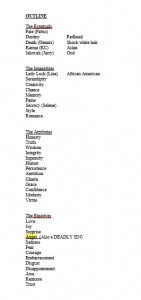 As more characters showed up and their mythology and history developed, I realized I needed to clarify their roles. While some of them were already categorized for me (The Seven Deadly Sins), I grouped the others into their cosmic job responsibilities:
As more characters showed up and their mythology and history developed, I realized I needed to clarify their roles. While some of them were already categorized for me (The Seven Deadly Sins), I grouped the others into their cosmic job responsibilities:
The Attributes (Honesty, Truth, Wisdom); The Emotives (Love); The Intangibles (Lady Luck); The Lesser Sins (Failure); and The Eventuals (Fate, Destiny, Death, Karma, and God). That’s a partial list there on the left.
I also had The Seven Heavenly Virtues, The Seven Contrary Virtues, and The Subversives (War, Hysteria, Paranoia), but none of them ever had a speaking part.
The Thing About Fated is…
If you’ve read Fated you know I use a recurring line throughout the novel to describe each of the characters. This wasn’t something I planned on but it just showed up at some point in the book and when it did, I realized I wanted to use it when introducing each immortal character.
But I didn’t want to just lazily tag each immortal character for the fun of it. I wanted their identifying features to be meaningful. I wanted to give each one of them a specific human flaw. I wanted to make theses immortal beings fallible, like the Greek Gods. Only instead of living on Mount Olympus, they live in Manhattan.
Rule #1: Don’t Get Involved
I also realized (with the help of my writing group) that in addition to creating defined roles for the different characters, I needed to create some rules for them and what they were in charge of doing. What could Fabio do as Fate? What were his limitations? Were they different than those of Gluttony or Secrecy or Lady Luck?
In my initial drafts of the novel I didn’t list specific rules and the novel didn’t start out with what would eventually become it’s opening line. It wasn’t until I defined these roles that I came up with some of the thematic meat of the story about humans and how we deal with what life throws at us, about how we choose to react to our failure or our lust or our greed that ultimately affects our fates and destinies.
A good potion of this happened in the rewrite phase, before the manuscript ever made it to my agent.
How Sara Got Her Groove
It took me three months to write the first 45,000 words of Fated (a little more than half the novel), then I spent the next nine months spinning my wheels, trying to figure out where it was going and what it wanted to be. During this time, I wrote another 15,000 words.
The biggest problem facing me was that, while I knew there was something special about Sara, I had no idea what that something was. I had some ideas but none of them excited me.
Then one day in late December of 2007, the last line of the novel popped into my head. It wasn’t something I’d thought about. It just showed up. And when it did, I thought: “I like this. But if this is the last line, then that means Sara is…” (I’m avoiding specifics and spoilers just in case someone hasn’t read the novel.)
After that, once I had that last line and Sara’s purpose, everything fell into place. I wrote 20,000 words in a month, finishing the last 5,000 words of the novel on the Friday and Saturday before the Super Bowl while fighting off a bad cold.
Fate and the Consumer Culture
When I started writing Fated in December 2006, I had no intention of writing a book about the consumer culture and how it affects our choices as humans and how we live our lives. But the more I wrote, the more it became apparent that this would be a recurring theme.
So perhaps it was destiny that I started my novel out with Fate sitting in a shopping mall. (Most of the social commentary about consumerism in the first chapter was added in later once I realized what the book was going to be about.)
But more than a social commentary on the consumer cultured, Fated is about finding something you enjoy doing, something that matters to you and fills you with a sense of purpose, rather than just living to work and working to live.
Fated Fun Facts
- Originally all of the immortal characters had pseudonyms that started with the same letter as their identity (Destiny/Desiree, Sloth/Seth, Gluttony/Gus), but I decided to scale back the pseudonyms because I thought it worked better to just have a few of them named, instead
- Chapter 6, where Fabio is assigning fates on the computer at Starbucks and gets the message from Jerry about a big event coming, was added in rewrites
- Some of my favorite chapters include: when Fabio goes to Jerry’s office for the first time; Fabio and Karma eating at Curry in a Hurry; the scene at the Westfield Mall in San Francisco; when Sara discovers Fabio’s identity; and pretty much every scene with Destiny
- There really is a law on the books in the state of Minnesota that prohibits sex between humans and birds
- In my fourth novel, Big Egos, Truth and Wisdom are sitting at the bar in Chapter 56 (page 306) during the scene at the Formosa Cafe
- Death (aka Dennis) also makes a cameo in Big Egos at the Mythical Creatures party in Chapter 44
- While I love all of my novels, Fated remains my favorite
